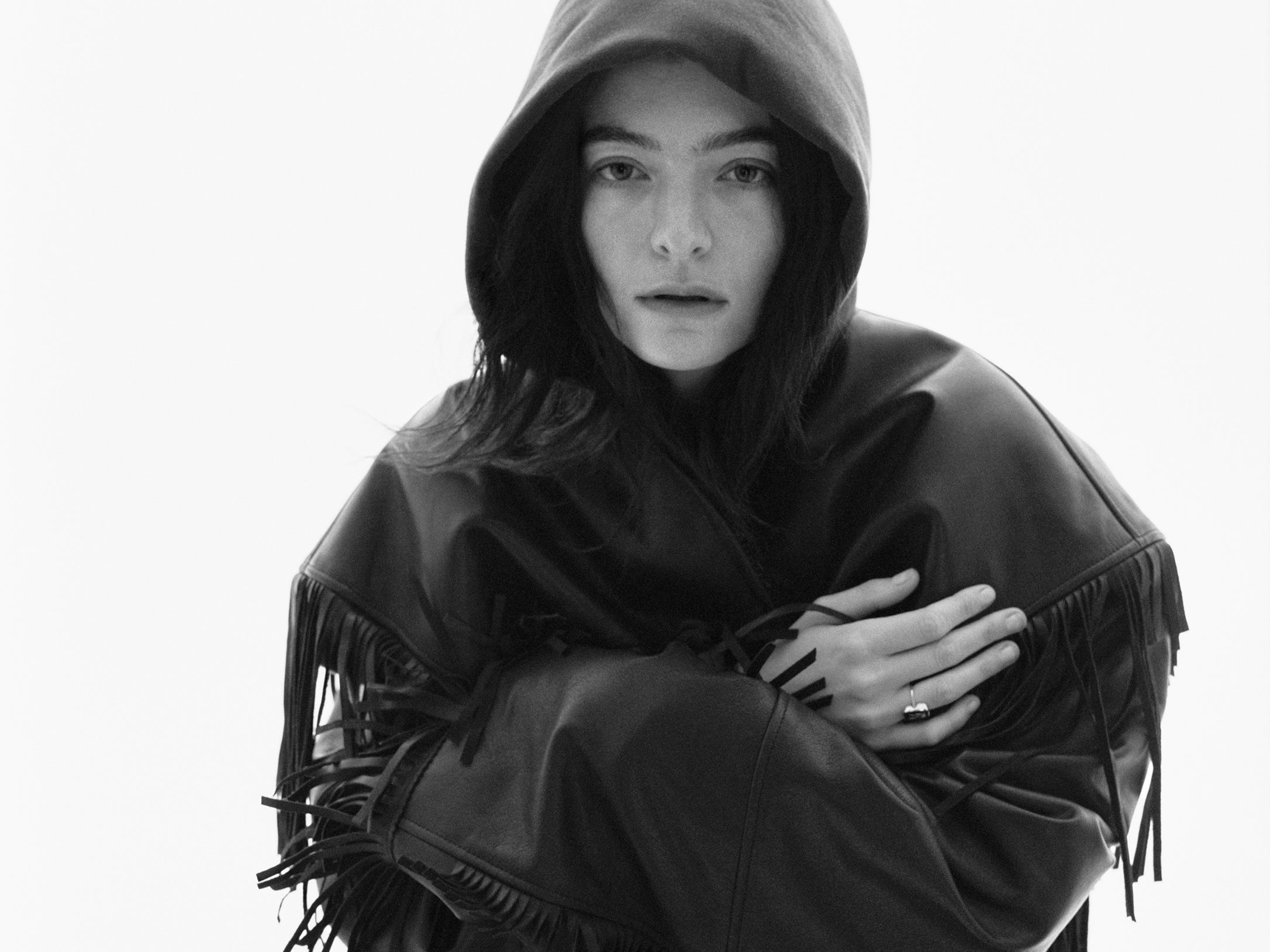
Thistle Brown
For most of us, the first words we heard come out of Lorde’s mouth took the shape of a disavowal: “I’ve never seen a diamond in the flesh.”
Lorde wrote “Royals” in 30 minutes when she was 15 years old. Growing up in New Zealand, disillusioned with materialism and flex culture — especially in the US — she proudly cast herself as a distant observer. She saw, she understood, but she didn’t participate.
This posture resonated with millions. “Royals” topped the Billboard Hot 100, where it remained for nine weeks. The smash hit was later certified diamond and won two Grammy Awards, including song of the year.
Lorde has spent much of her career being portrayed as elusive and infallible by fans and media outlets alike. She tends to release an album every four years, and in between, she retreats from the spotlight. Even her stage name (Lorde’s real name is Ella Yelich-O’Connor) evokes an office that’s separate and superior.
But a lot has changed since “Royals” was released as a single in 2013, just a few years after Instagram was launched. At the time, the platform was generally used for sharing one perfectly posed (and heavily filtered) photo at a time. Now, Instagram timelines look much less curated, with the savviest social media enthusiasts sharing unrefined “photo dumps” and spontaneous Instagram Stories instead.
Pop culture has tilted dramatically in favor of relatability, transparency, and authenticity, too. Consumers no longer demand polish, poise, or aloof nonchalance from celebrities. “Mess is in,” DJ Louie XIV, music critic and host of the Pop Pantheon podcast, recently told me while discussing the state of pop music.
Several of last year’s biggest hits corroborate his thesis: Taylor Swift embraced chaos and lust in writing “The Tortured Poets Department,” and it became the best-selling album of her career. Chappell Roan canceled concerts, shared off-the-cuff videos on TikTok, scolded photographers on red carpets, and then won best new artist at the Grammys.
Charli XCX’s summer-defining album “Brat“ — which the singer described as “my flaws, my fuck ups, my ego all rolled into one” — offers perhaps the clearest example of how this aesthetic has taken over.
“Even Charli’s outfits are tattered. She can’t sing except in autotune. The whole album is about emotional messiness,” Louie said. Charli XCX even recruited Lorde for a remix of the track “Girl, So Confusing,” to hash out their long-simmering tension in real time.
For the new wave of pop stars, he added, fans “seeing the seams is a plus.”
Lorde’s journey from ‘Royals’ to ‘Virgin’ reflects a cultural shift
Lorde has surely noticed this trend because there’s plenty of mess in her fourth album, “Virgin,” released on Friday.
Gone is the detached, enigmatic attitude from Lorde’s debut album, when she insisted, “I’m kind of over getting told to throw my hands up in the air, so there.” Now, she won’t only throw her hands up, but she’ll admit to getting them dirty, just like the rest of us.
Lorde has said that “Virgin” represents a sort of rebirth — a newfound willingness to follow her gut and experience the world without a protective veil.
The album’s 11 tracks tackle an array of knotty topics, from enjoying unprotected sex (“Clearblue”) and yearning for her mother’s approval (“Favourite Daughter”) to dabbling with drugs (“What Was That”) and struggling with an eating disorder (“Broken Glass”).
Lorde’s honest lyricism is punctuated with palpable details: a discarded at-home pregnancy test, a dead uncle whom she resembles, blown-up pupils, and rotting teeth. These images make her life feel real and human. “Mystique is dead,” she sings bluntly.
This is not to say Lorde has never used personal details in her music. However, her last two albums, “Melodrama” and “Solar Power,” offered confessions often cloaked in self-conscious theatrics, metaphor, or irony.
When Lorde sang, “I can’t feel a thing / I keep looking at my mood ring / Tell me how I’m feeling” in the 2021 single “Mood Ring,” she was poking fun at the cult of wellness and the blonde caricature she adopted in the music video.
By contrast, when she sings, “Take an aura picture, read it, and tell me who I am” in the new album’s opening track, “Hammer,” it’s clear that she’s disclosing a raw moment of self-doubt. (And her habit of taking aura photos in New York City’s Chinatown is well-documented.)
Lorde’s “Virgin” co-producer, Jim-E Stack, told GQ how the duo intentionally added sounds that felt raw or jarring to reflect the author’s mindset. With AI and modern technology, he pointed out, it’s easy for artists to make perfect-sounding records with no hiccups or texture. And when it comes to art, easy usually translates to boring.
“That is what’s exciting in music right now, and where innovation is happening: People channeling their imperfections and saying stuff that’s a little scary,” Stack told the publication. “There [are] definitely songs on Ella’s record that are like, ‘Whoa, can you say this as a pop star?'”
He was right to be concerned; a lesser artist wouldn’t be able to pull it off. But Lorde can, she should — and she did.
The post Lorde’s new album ‘Virgin’ is messy, emotional, and perfectly suited for the moment appeared first on Business Insider.




